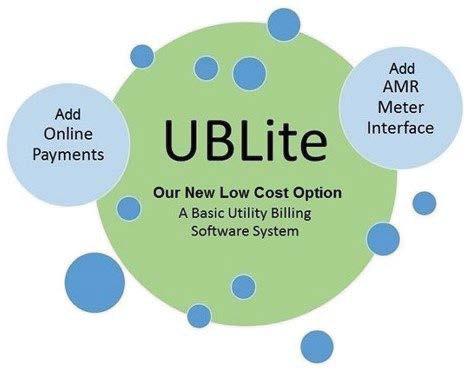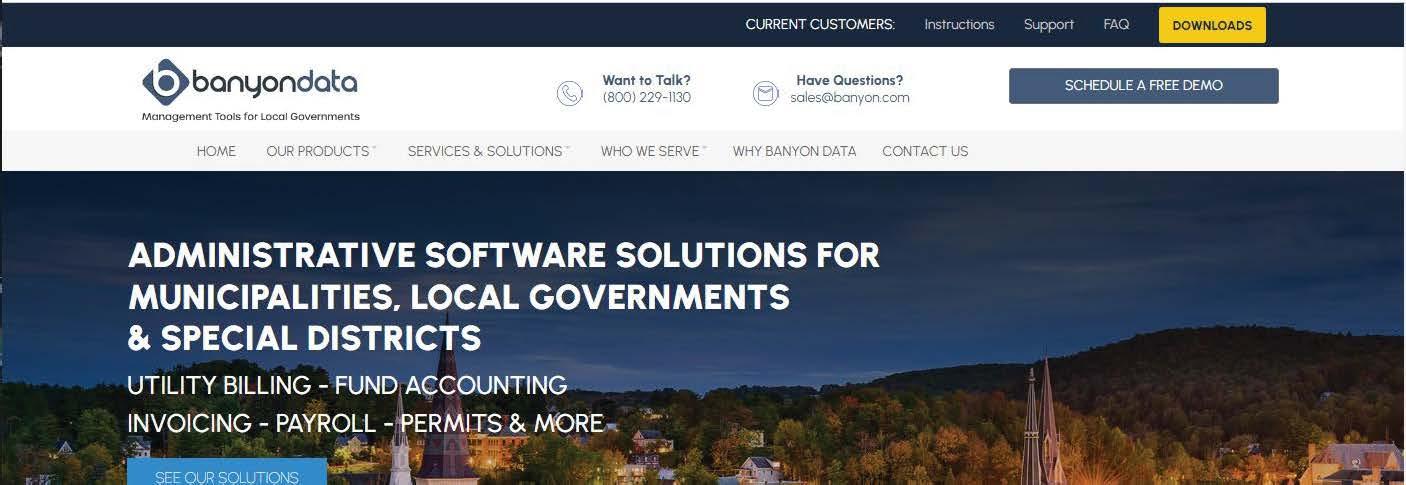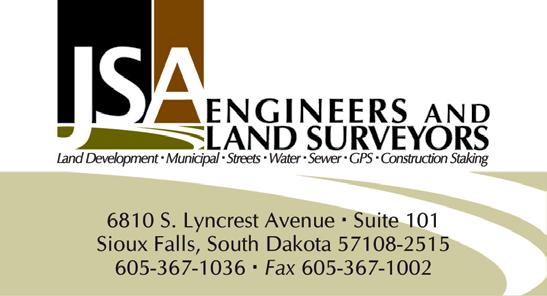
11 minute read
FLSA Child Labor Regulations Refresher
Reprinted from the United States Department of Labor Wage and Hour Division website. The information in this article is a snapshot of what is provided via the DOL website. For more details follow visit http:// www.dol.gov/whd/regs/compliance/childlabor101.pdf
With summer just around the corner, it may be a good time to have a little refresher course on the Fair Labor Standards Act (FLSA) regarding child labor regulations. Employers may employ youth only under certain conditions and child labor regulations vary significantly depending on the age of the youth.
Advertisement
Federal Child Labor Provisions
The federal child labor provisions, also known as the child labor laws, are authorized by the Fair Labor Standards Act (FLSA) of 1938. These provisions were enacted to ensure that when young people work, the work is safe and does not jeopardize their health, well-being, or educational opportunities. By knowing, understanding, and complying with these provisions, employers, parents, and teachers can help working teens enjoy those safe, positive, early work experiences that can be so important to their development.
Other Laws That Impact Child Labor
Other federal and state laws may have higher standards. When these apply, the more stringent standard must be observed. All states have child labor provisions, compulsory school attendance laws, and establish the minimum ages and conditions under which youths may operate motor vehicles.
Unless otherwise exempt, a covered minor employee is entitled to receive the same minimum wage, overtime, safety and health, and non-discrimination protections as adult workers.
Minimum Age Standards For Nonagricultural Employment
• 14 - Minimum age for employment in specified occupations outside of school hours for limited periods of time each day and each week.
• 16 - BASIC MINIMUM AGE FOR EMPLOYMENT. At 16 years of age, youth may be employed for unlimited hours in any occupation other than one declared to be hazardous by the Secretary of Labor.
• 18 - Minimum age for employment in nonagricultural occupations declared hazardous by the Secretary of Labor.
OCCUPATION STANDARDS FOR 14- AND 15-YEAR-OLDS
The following list, which is not exhaustive, are jobs that 14- and 15-year-olds may not be employed in:
1. Any manufacturing occupation.1
2. Any mining occupation.
3. Most processing occupations such as filleting of fish, dressing poultry, cracking nuts, developing of photographs, laundering, bulk or mass mailings (except certain occupations expressly permitted as discussed below).
4. Occupations requiring the performance of any duties in workrooms or workplaces where goods are manufactured, mined or otherwise processed (except to the extent expressly permitted as discussed below; and as discussed in footnote 1).
5. Any occupation found and declared to be hazardous by the Secretary of Labor.
6. Occupations involved with the operating, tending, setting up, adjusting, cleaning, oiling, or repairing of hoisting apparatus.
7. Work performed in or about boiler or engine rooms or in connection with the maintenance or repair of the establishment, machines, or equipment.
8. Occupations involved with the operating, tending, setting up, adjusting, cleaning, oiling, or repairing of any power-driven machinery, including, but not limited to, lawnmowers, golf carts, all-terrain vehicles, trimmers, cutters, weed eaters, edgers, food slicers, food grinders, food choppers, food processors, food cutters, and food mixers. Fourteen- and 15-yearolds may operate most office machinery and those machines that are expressly permitted.
9. The operation of motor vehicles or service as helpers on such vehicles.
10. The riding on a motor vehicle inside or outside of an enclosed passenger compartment except as permitted in #16 in the next list.
11. Outside window washing that involves working from windowsills.
12. All work requiring the use of ladders, scaffolds, or their substitutes.
13. All baking and most cooking activities except as discussed in the following #3.
14. Work in freezers and meat coolers and all work in the processing of meat for sale; however, youth are permitted to occasionally enter freezers only momentarily to retrieve items.
15. Youth peddling, including not only the attempt to make a sale or the actual consummation of a sale, but also the preparatory and concluding tasks normally performed by a youth peddler, such as the loading and unloading of motor vehicles, the stocking and restocking of sales kits and trays, the exchanging of cash and checks with the employer, and the transportation of the minors to where the sales will be made.
16. Loading and unloading of goods or property onto or from motor vehicles, railroad cars, and conveyors, except as discussed in the following #12.
17.
18. Public messenger service.
19. Occupations in connection with: a. Transportation of persons or property by rail, highway, air, on water, pipeline, or other means. b. Warehousing and storage. c. Communications and public utilities. d. Construction (including repair). Except 14- and 15-year-olds may perform offi ce or sales work in connection with a, b, c, and d above when not performed on transportation media, on an actual means of transportation, or at the actual construction site.


The following is the list of jobs the Secretary of Labor has determined will not interfere with the schooling, health, and well-being of 14- and 15-year-olds and therefore MAY BE performed by such youth. Any job not specifically permitted, is prohibited.
1. Offi ce and clerical work, including operation of offi ce machines.
2. Work of an intellectual or artistically creative nature such as but not limited to computer programming, the writing of software, teaching or performing as a tutor, serving as a peer counselor or teacher’s assistant, singing, the playing of a musical instrument, and drawing, as long as such employment complies with all the other provisions contained in §§ 570.33, .34, and .35.
3. Cooking with electric or gas grills that do not involve cooking over an open flame and with deep fat fryers that are equipped with and utilize devices that automatically lower and raise the baskets into and out of the oil or grease. NOTE: this section does not permit cooking with equipment such as rotisseries, broilers, pressurized equipment including fryolators, and cooking devices that operate at extremely high temperatures such as “Neico broilers.”
4. Cashiering, selling, modeling, artwork, work in advertising departments, window trimming and comparative shopping.
5. Price marking and tagging by hand or by machine. Assembling orders, packing, and shelving.
6. Bagging and carrying out customer orders.
7. Errand and delivery work by foot, bicycle, and public transportation. Except such youth may not be employed by a public messenger service.
8. Cleanup work, including the use of vacuum cleaners and floor waxers, and the maintenance of grounds, but not including the use of power-driven mowers, cutters, trimmers, edgers, or similar equipment.
9. Kitchen work and other work involved in preparing and serving food and beverages, including operating machines and devices used in performing such work. Examples of permitted machines and devices include, but are not limited to, dishwashers, toasters, dumbwaiters, popcorn poppers, milk shake blenders, coffee grinders, automatic coffee machines, devices used to maintain the temperature of prepared foods (such as warmers, steam tables, and heat lamps), and microwave ovens that are used only to warm prepared food and do not have the capacity to warm above 140°F.
10. Cleaning kitchen equipment. Minors are permitted to clean kitchen equipment (not otherwise prohibited), remove oil or grease filters, pour oil or grease through filters, and move receptacles containing hot grease or hot oil, but only when the equipment, surfaces, containers and liquids do not exceed a temperature of 100°F.
11. Cleaning vegetables and fruits, and the wrapping, sealing, labeling, weighing, pricing, and stocking of items, including vegetables, fruits, and meats, when performed in areas physically separate from a freezer or meat cooler.
12. Loading onto motor vehicles and the unloading from motor vehicles of the light, non-power-driven, hand tools and personal protective equipment that the minor will use as part of his or her employment at the work site; and the loading onto motor vehicles and the unloading from motor vehicles of personal items such as a backpack, a lunch box, or a coat that the minor is permitted to take to the work site. Such light tools would include, but not be limited to, rakes, hand-held clippers, shovels, and brooms. Such light tools would not include items like trash, sales kits, promotion items or items for sale, lawn mowers, or other power-driven lawn maintenance equipment. Such minors would not be permitted to load or unload safety equipment such as barriers, cones, or signage.
13. The occupation of lifeguard (15-year-olds but not 14-year-olds) at traditional swimming pools and water amusement parks (including such water park facilities as wave pools, lazy rivers, specialized activity areas, and baby pools, but not including the elevated areas of water slides) when properly trained and certified in aquatics and water safety by the American Red Cross or a similar certifying organization. No youth under 16 years of age may be employed as a lifeguard at a natural environment such as an ocean side beach, lake, pond, river, quarry, or pier.
14. Employment of certain youth under specified conditions inside and outside of establishments where machinery is used to process wood products. See the DOL link at the beginning of this article for information on this exemption.

15. Work in connection with cars and trucks if confined to the following:
- Dispensing gasoline and oil.
- Courtesy service on premises of gasoline service station.
- Car cleaning, washing, and polishing by hand.
- Other occupations permitted by Child Labor Regulation No. 3, but not including work involving the use of pits, racks or lifting apparatus or involving the inflation of any tire mounted on a rim equipped with a removable retaining ring.
16. Work in connection with riding inside passenger compartments of motor vehicles except as prohibited in #10 in the previous list or when a significant reason for the minor being a passenger in the vehicle is for the purpose of performing work in connection with the transporting—or assisting in the transporting of—other persons or property. Each minor riding as a passenger in a motor vehicle must have his or her own seat in the passenger compartment; each seat must be equipped with a seat belt or similar restraining device; and the employer must instruct the minors that such belts or other devices must be used. In addition, each driver transporting the young workers must hold a valid state driver’s license for the type of vehicle being driven and, if the driver is under the age of 18, his or her employment must comply with the provisions of HO 2 (see chart).
EMPLOYMENT STANDARDS FOR 16- AND 17-YEAR-OLDS IN NONAGRICULTURAL EMPLOYMENT
The Hazardous Occupations Orders (HOs) for Nonagricultural Employment
These Orders are published in Subpart E of Part 570 of Title 29 of the Code of Federal Regulations.
The FLSA provides a minimum age of 18 years for any nonagricultural occupations which the Secretary of Labor “shall find and by order declare” to be particularly hazardous for 16- and 17-year-old persons, or detrimental to their health and well-being. This minimum age applies even when the minor is employed by the parent or person standing in place of the parent.
The seventeen HOs apply either on an industry basis, ► specifying the occupations in the industry that are not permitted, or an occupational basis irrespective of the industry in which found. Some of the HOs contain limited exemptions.
Enforcement Of The Federal Child Labor Provisions
The Wage and Hour Division, which is part of the Department of Labor, administers and enforces the child labor, minimum wage, overtime, and recordkeeping provisions of the Fair Labor Standards Act. The Wage and Hour Division also has enforcement responsibility for programs covering such things as prevailing wages for government contracts, the payment of special minimum wages, farm labor, family and medical leave, immigration, and polygraph testing. Wage and Hour Division Investigators, who are stationed across the United States, are authorized to conduct investigations, and gather data on wages, hours of work, and compliance with all the provisions of the FLSA, including the child labor provisions.
Penalties For Violation
Civil Money Penalties
Employers may be subject to a civil money penalty of up to $14,050 for each employee who is the subject of a child labor violation. The penalty may be increased to $63,855 for each violation that causes the death or serious injury of a minor, and that penalty may be doubled when the violations are determined to be repeated or willful. When a civil money
The Hazardous Occupations Orders (HO s ) for Nonagricultual Employment
Employment Standards for 16- and 17-Year-Olds in Nonagricultural Employment penalty is assessed against an employer for a child labor violation, the employer has the right, within 15 days after receipt of the notice of such penalty, to file an exception to the determination that the violation or violations occurred.
HO 1 Manufacturing and storing of Explosives.
HO 2 Motor-vehicle driving and outside helper on a motor vehicle.
HO 3 Coal mining.
HO 4 Occupations in forest fire fighting, forest fire preventions, timber tract opeations, forestry service, logging, and sawmilling.
HO 5* Power-driven woodworking machines.
HO 6 Exposure to readioactive substances.
HO 7 Power-driven hoisting apparatus, including forklifts.
HO 8* Power-driven metal-forming, punching, and shearing machines.
HO 9 Mining, other than coal mining.
HO 10* Operating power-driven meat processing equipment, including meat slicers and other food slicers, in retail establishments (such as grocery stores, restaurants, kitchens, and delis) and wholesale establishments, and most occupations in meat and poultry slaughtering, packing, processing, or rendering.
HO 11 Power-driven bakery machines including vertical dough or batter mixers.
HO 12* Power-driven balers, compactors, and paper processing machines.
HO 13 Manufacturing bricks, tile, and kindred products.
HO 14* Power-driven circular saws, bandsaws, chain saw, guillotine shears, wood chippers, and abrasive cutting discs.
HO 15 Wrecking, demolition, and shipbreaking operations.
HO 16* Roofing operations and all work on or about a roof.
HO 17* Excavation operations.
* These HOs provide limited exemptions for 16- and 17-year-olds who are bona-fide student-learners and apprentices.
When such an exception is filed with the office making the assessment, the matter is referred to the Chief Administrative Law Judge, and a formal hearing is scheduled. At such a hearing, the employer may, or an attorney retained by the employer may, present such witnesses, introduce such evidence, and establish such facts as the employer believes will support the exception. The determination of the amount of any civil money penalty becomes final if no exception is taken to the administrative assessment thereof, or if no exception is filed pursuant to the decision and order of the administrative law judge.
Injunction to Compel Compliance
The FLSA authorizes the Department of Labor to seek injunctions against violators of the child labor provisions to compel their compliance with the law. Further violations could result in sanctions against such persons for contempt of court.
Criminal Sanctions
The FLSA also provides, in the case of a willful violation, for a fine up to $10,000; or, for a second offense committed after the conviction of such person for a similar offense, for a fine of not more than $10,000 or imprisonment for not more than 6 months, or both.
Additional Information
For information about the federal child labor requirements, visit the YouthRules! at http://www.youthrules.dol.gov.
Inquiries about the Fair Labor Standards Act or any other law administered by the Wage and Hour Division may be addressed to any local office of the Wage and Hour Division. Additional information is available at http://www.dol.gov/whd/ index.htm.
Locate the Wage and Hour Division office nearest to you, telephone the toll-free information and helpline at 1-866-4USWAGE (1-866-487-9243): a customer service representative is available to assist you with referral information from 8am to 5pm in your own time zone; or log onto the nationwide listing of Wage-Hour District Offices located at: http://www.dol.gov/ whd/america2.htm. ■
Notes
1. Section 13(c)(7) of the FLSA, enacted in 2004, permits the employment of certain minors between the ages of 14 and 18, who have been excused from compulsory school attendance, inside and outside of places of business where machinery is used to process wood products. This provision, however, does not permit such minors to operate, or assist in the operation of power-driven woodworking machines.







